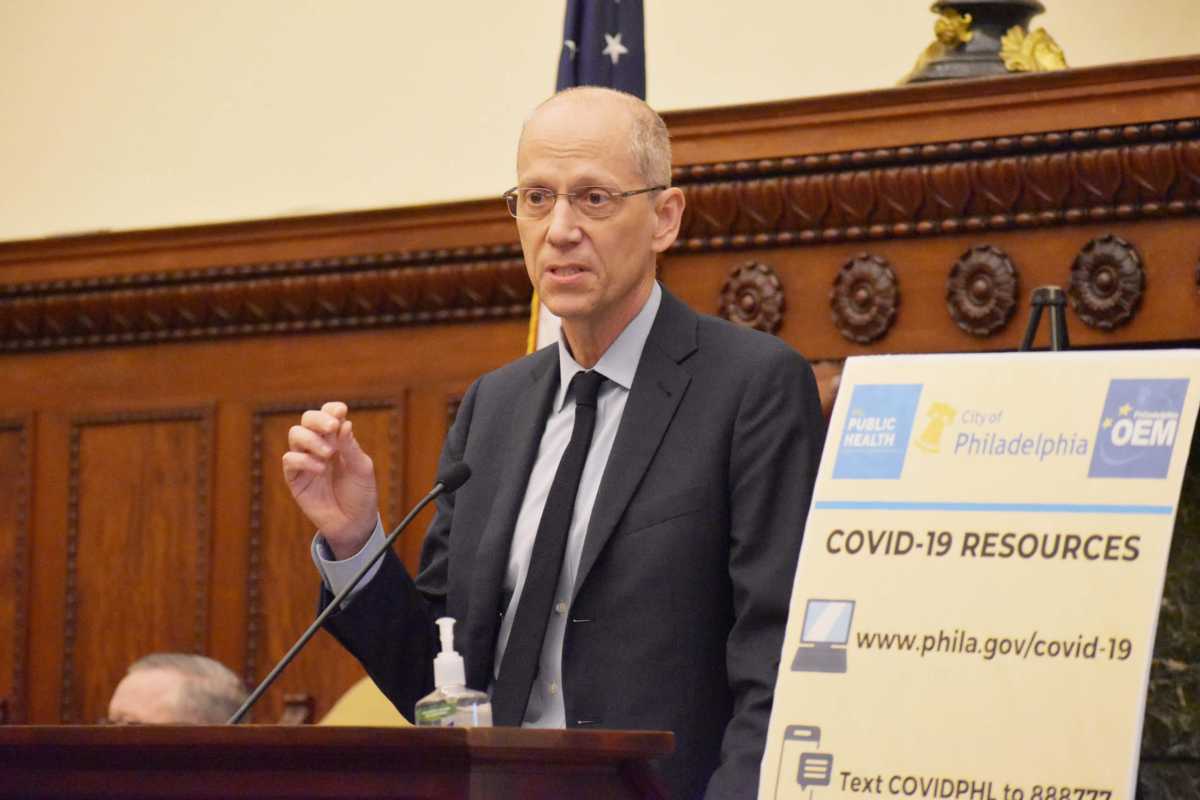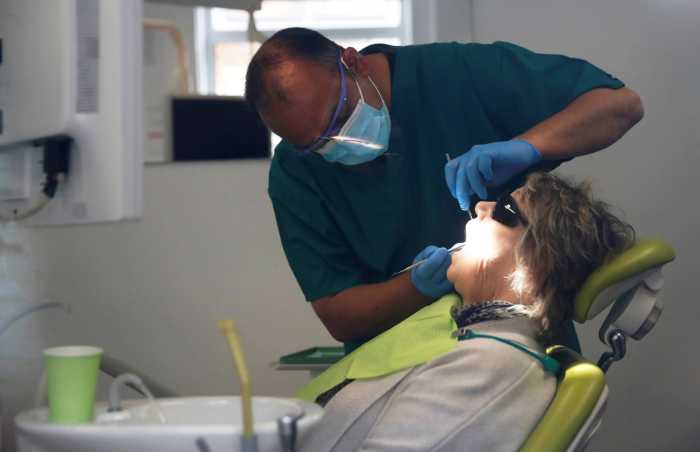Philadelphia will begin allowing larger outdoor events next week, but the city will not be abiding by Gov. Tom Wolf’s decision to permit restaurants to expand indoor dining capacity later this month.
Health Commissioner Thomas Farley said that, effective Monday, the limit on outdoor gatherings will be increased from 50 to 150 people. Indoor events will still be restricted to a maximum of 25.
It’s been shown that the novel coronavirus is less likely to spread when people get together outside, Farley said.
On Tuesday, the city’s prohibition on indoor dining was lifted, with restaurants allowed to open at 25% capacity. Meanwhile, state officials announced that eateries would be allowed to open at 50% capacity Sept. 21.
Farley said city leaders have decided to postpone that move. If case counts don’t surge and the change works well in other parts of Pennsylvania, officials will consider bumping up capacity next month, he said.
The city has generally imposed stricter coronavirus restrictions than the rest of the state.
Philadelphia reported 77 new COVID-19 cases Thursday and no additional deaths.
Temple University’s outbreak, which led the school to end in-person classes for the semester, appears to be continuing to recede, Farley said. The college reported 255 active cases on Thursday.
“However, we’re still concerned about the potential of spread at other colleges here,” Farley said. “So we’re asking all the colleges in the area to do what they can to prevent social gatherings amongst their students.”
Officials believe the virus spread among Temple’s student body through small, informal gatherings off campus.
During an afternoon press briefing, Farley reflected on the pandemic, which began exactly six months ago. The first documented COVID-19 case in Philadelphia occurred March 10.
Farley said he hopes a vaccine will be distributed in the early months of 2021 and that some people may be able to access it by the end of this year.
“The long-term trajectory is clearly towards returning to normal,” he said. “We are very much recovering.”
In other coronavirus-related news, Mayor Jim Kenney’s administration said it is putting off a planned property tax reassessment.
The delay could be good news for residents, as evaluations tend to rise during the process. Recent assessments have angered many homeowners and drawn scrutiny from City Council.
Properties with new construction, expiring abatements, renovations, subdivisions, consolidations or errors in previous evaluations will be reassessed, but, for most, the appraisal will remain at current levels.
Officials said the process was delayed due to remote working arrangements and the postponement of training on a new appraisal system. The reassessment is expected to take effect for tax year 2023.
City leaders on Thursday released a new COVID-19 economic recovery plan, with a focus on increasing opportunities for people of color in the wake of the pandemic.
The document described what the city has done so far, and what it plans to do to spur business and economic activity.
Acting Commerce Director Sylvie Gallier Howard said part of the strategy is to analyze the city’s entrepreneurship ecosystem and create a fund for new, minority-owned businesses.
A recent study found that Philadelphia trails other major East Coast cities when it comes to businesses per capita. The city also has fewer Black-owned firms.
“We really want to find strategies to increase entrepreneurship and to ensure entrepreneurs succeed,” Gallier Howard said.
Additionally, the recovery plan focuses on preparing the city’s businesses and workforce to participate in the growing technology sector.
About 208,000 city residents have applied for unemployment since the start of the pandemic, and the city’s jobless rate stands just under 18%.
“One of the biggest problems facing Philadelphia is our level of poverty, and our level of poverty in communities of color is also quite upsetting,” Kenney said. “We have to make sure that we look through a racial equity lens as we recover and rebuild.”



























